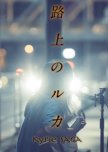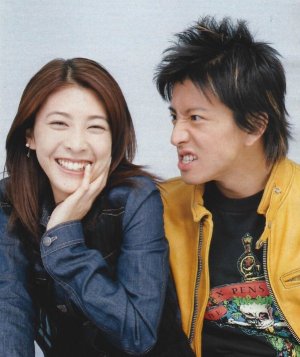
Shunji Iwai's "Rojo no Ruka"! ?✨
It’s been over four days since I first watched this dorama, and I was so overwhelmed that I went back for a rewatch. I just finished my second viewing yesterday, and honestly, I’m still obsessed and can’t stop thinking about it! I already feel like watching it again!Story:
The story follows Ruka (played by Aina the End), a young girl from Ishinomaki who finds herself wandering through Japan — Osaka, Obihiro, and Tokyo — after a major catastrophic event. She carries her grief silently, ceasing to speak except through her singing. Along the way, Ruka spends much of her time with Natsuhiko (played by Hokuto Matsumura), her sister’s former lover, and meets Kirie (played by Suzu Hirose) in Obihiro, who has a profound impact on her life. The narrative beautifully explores Ruka's silent struggle with her inner turmoil and how her emotions find a voice through her music!
Performances:
The performances in this dorama are stellar across the board. Haru Kuroki delivers a memorable performance as the character who looks after Ruka during her time in Osaka. The cast also features real-life singers, adding an authentic touch to the story. Tavito Nanao, another singer who's making his debut, plays a street musician who plays a crucial role in giving Ruka the opportunity to find her own voice, significantly influencing her journey to becoming a street singer herself!
Aina the End:
Aina has a remarkably distinctive, husky voice that she uses to great advantage in the dorama. Despite it being her debut, she performs with such confidence that it hardly feels like a first-time acting experience. While she may give off a non-actor vibe, she perfectly captures the aesthetic and charm of a Shunji Iwai female lead! Aina takes on a complex role with minimal dialogue, relying on her facial and physical expressions to convey deep emotions. She delivered an outstanding performance, fitting the role exactly as Iwai-san intended. The way she transitions between Ruka and her elder sister is seamless, convincingly differentiating between the two characters!
Music:
As always, Shunji Iwai places a strong emphasis on music, and this dorama is no exception. Since the story revolves around a singer, the musical backdrop is extensive. It features Aina’s original songs that she wrote specifically for this project, some stirring church hymns, and the rest of the music and the soundtrack were scored by Iwai's regular collaborator Takeshi Kobayashi. Each element of music adds incredible depth to the narrative, enhancing the overall experience. I can’t get enough of the soundtrack and I've been playing it every day. Iwai also used field recordings of street musicians to bring authenticity to the scenes. As he puts it, "We wanted to give the feeling that part of the movie was a performance."
Shunji Iwai:
At its core, Iwai has delivered another quintessential IWAI MASTERPIECE! I haven’t been this obsessed with one of his works since "Love Letter". While I cherish almost every work he has created, this one feels exceptionally special, authentic, and emotionally rich! His skill in capturing pain, deep emotions, tranquility, heartfelt and heartbreaking moments, along with the musicality and nuanced performances from his actors is nothing short of mesmerizing!
Please go for the 5.5-hour dorama version — the longer, the better, especially with Iwai! His storytelling has never felt tedious to me. Above all, this is the version that Iwai truly envisioned. He re-edited the footage to present the story exactly as he intended, delivering a version he is genuinely satisfied with! ?
Was this review helpful to you?

















